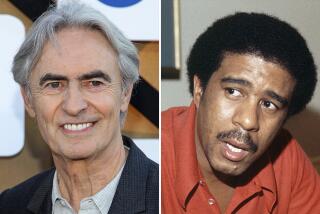The Ward Churchill verdict
Most Americans understand that protecting free speech means defending not only those who speak truth to power but those who hate us, scare us, revolt us or offend us.
The United States has upheld the right of Nazis to march through Jewish neighborhoods and the right of Hustler publisher Larry Flynt to portray Jerry Falwell losing his virginity to his mother in an outhouse. It has permitted communists to advocate the overthrow of the government and paparazzi to poke their cameras into the private lives of others. Americans don’t have to approve of these behaviors to recognize that they are protected under the 1st Amendment.
Now comes Ward Churchill, who was fired in 2007 from his $96,392-a-year job as an ethnic studies professor at the University of Colorado after being accused of plagiarism, falsifying research and academic misconduct. Churchill says that was just a pretext. The real reason he was fired, he insists, was to pacify a “howling mob” furious about his political writings.
Those writings were indeed offensive -- less for their rabid anti-Americanism than for their coldhearted insensitivity. On Sept. 12, 2001, the day after the deadliest attacks in U.S. history, Churchill argued not only that the U.S. had brought the attacks on itself but that some of the victims working in the World Trade Center were “little Eichmanns” (a reference to Holocaust architect Adolf Eichmann) because they “formed a technocratic corps at the very heart of America’s global financial empire.”
The essay created a huge controversy when it was reprinted in 2005. Many people, including the then-governor of Colorado, called for Churchill’s ouster. In the months that followed, complaints began to roll in about the quality of Churchill’s academic work, and the university opened an investigation. He was ultimately fired on the advice of three faculty committees.
Churchill sued, and on Thursday a jury found that he had been wrongfully fired and that his political views had been “a substantial or motivating” factor in the decision. His lawyers will ask the judge to order his reinstatement.
It was a tough case, pitting academic honesty and integrity against a scholar’s right to freely express unpopular views. Churchill engaged in practices that even common sense would argue against, such as ghostwriting works for other scholars and then citing those works as support for his own theories. We don’t think that academic misconduct, when proved, should be tolerated.
But at the same time, the jury has spoken, and we can’t help feeling some pride that it had the courage to stand up to outraged public opinion and defend the free-speech rights of an unpopular citizen.
More to Read
A cure for the common opinion
Get thought-provoking perspectives with our weekly newsletter.
You may occasionally receive promotional content from the Los Angeles Times.










